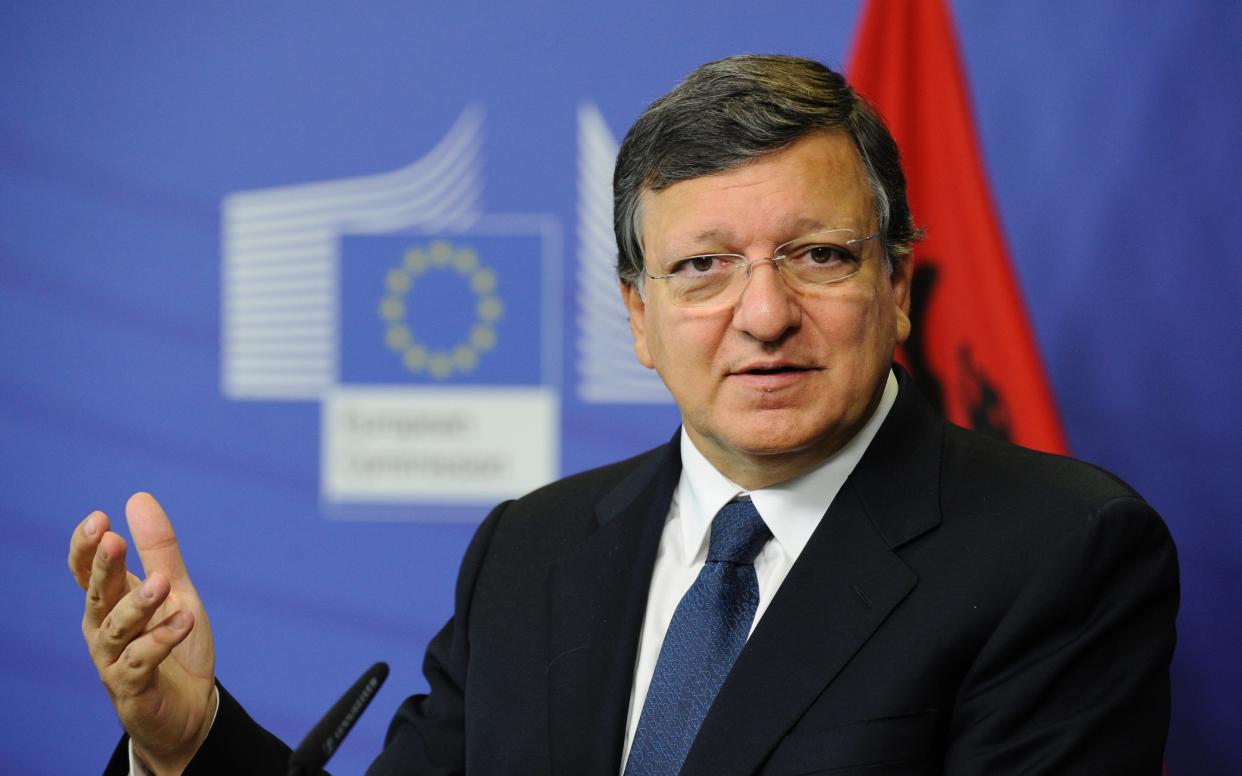Could a former EU president help Mrs May solve the backstop deadlock?

This is where we are: the Commons stands overwhelmingly opposed to Theresa May’s EU withdrawal deal, for a variety of different reasons. Therefore the prime minister has headed to Brussels to try to get new assurances that might encourage some of the deal’s opponents to give it further consideration.
But the leaders of the EU 27, collectively and individually, aren’t playing ball, it seems. The deal is settled, they say publicly and privately, there’s nothing more to discuss, and the only change that can emerge from these latest meetings is – perhaps – some warmer words of assurance on the nature of the dreaded backstop arrangement.
And so the clock keeps ticking.
It is ironic, and perhaps inevitable, that Northern Ireland – which received next to no attention during the EU referendum campaign in 2016 – has emerged as the big sticking point in Mrs May’s efforts to land a deal that will merit the approval of the Commons.

Perhaps some MPs on all sides are considering just how different everything would be if no consideration had to be given at all to that small and troubled province. After all, taking England, Wales and Scotland out of the customs union and single market next March, while posing all the usual political difficulties we might expect, would not present the unusual difficulties that Northern Ireland has these last two and a half years.
Let’s cast our minds back to the start of negotiations when the EU insisted that Northern Ireland, thanks to its history and delicate politics, would be given a special status in these talks. The land border between the UK and Ireland would, after all, shortly become the land border between the EU and the outside world. The priority of all concerned was the preservation of peace; the way to achieve this was to respect and defend the advances contained in the Good Friday Agreement and keep the border open in both directions.
But not long after these warm and supportive assurances about Northern Ireland’s “special status” were made, European realpolitik kicked in. Far from offering it special status, the EU has instead insisted that it will treat the border between Northern Ireland and Ireland in exactly the same as the rest of its external borders. All rules will apply, as if Ulster is no different in EU bureaucrats’ minds from Turkey or Norway.
And in their minds, it isn’t. Certainly, it was politically expedient to pretend that special consideration and flexibility could be applied there in order to preserve peace even as the UK departed from the EU. But as talks progressed, so the EU negotiating team came to realise that Northern Ireland’s greatest quality was not as a post-conflict example to the world, but as a stick with which to beat Britain’s government.
“Special status” for Northern Ireland quickly became “standard status”; that is, exactly the same status that applies to any country bordering the EU, and therefore the only alternative to a hard border is for Northern Ireland – and, the EU hope, the rest of the UK – to remain in the customs union.

Which is why we are where we are, with Conservative MPs understandably unhappy about the different regulatory regimes that might apply, in time, to Northern Ireland and to Britain, with the former essentially being held hostage by the threat of a return of a hard border and the violent consequences that most believe would result.
Now, at the last minute, riding over the hill to Mrs May’s rescue, comes the unlikeliest of defenders. José Manuel Barroso stepped down as EU Commission president in 2014, and his words must be read in the context of the freedom – and lack of authority – that comes with being a former holder of any powerful post. Nevertheless, he is injecting a degree of pragmatism and flexibility that his successor, Jean-Claude Juncker, finds it hard to summon.
Yesterday, Mr Barroso Tweeted: “Now that Brexit appears unavoidable it’s extremely important to get a deal that avoids the so called hard Brexit. The European Union, that until now has shown such remarkable coherence and intelligence on this issue, should show some flexibility on the backstop.”
Whether this suggests he recognises the need to offer Northern Ireland the flexible status that was implied earlier in the talks, or whether he’s suggesting some addendum to the agreement that would allow the UK to withdraw from the backstop without the agreement of the EU, is unclear. Either approach would be welcome and would help reassure suspicious Conservatives at home.
But flexibility has never been the EU’s forté. This is unavoidable: such a massive international co-operative effort can hardly work cohesively unless there is a robust legal framework to keep things ticking along. The thing is, that inflexibility is one of the reasons that Britons chose to leave in the first place.
The EU would be doing itself, as well as us, a favour if it recognised that pragmatism and flexibility can, on occasion, lead to the kind of solutions that strict interpretation of the rulebook cannot. What a pity that such insights only happen to politicians after they are safely removed from office.

 Yahoo News
Yahoo News 
